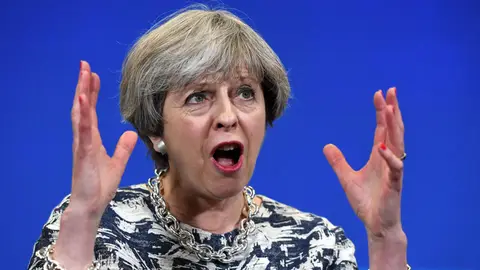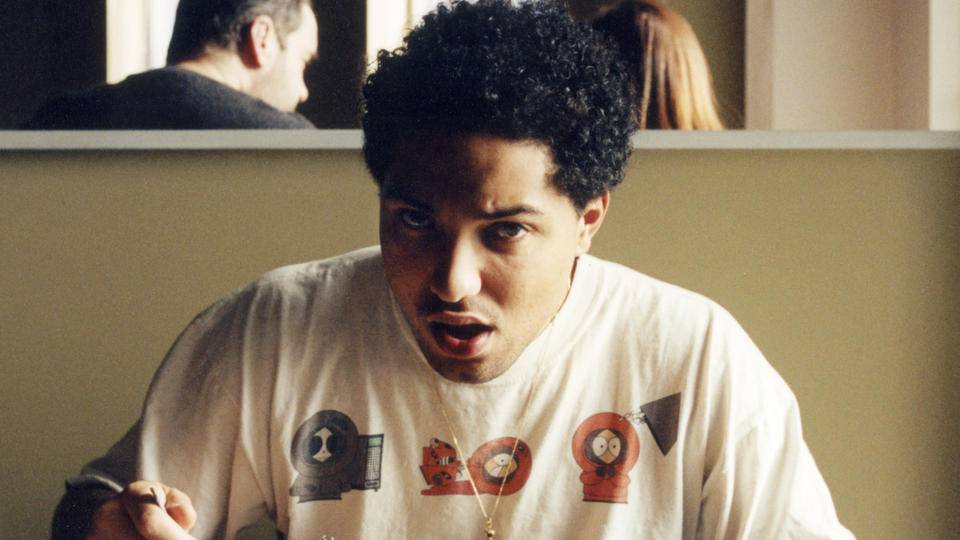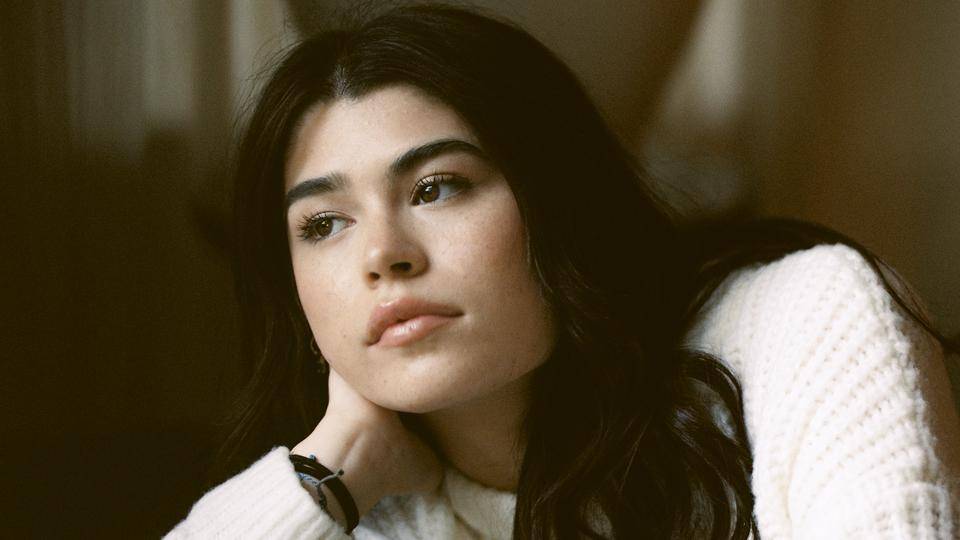First-Time Voters On What The 2017 General Election Means To Them

Tomorrow, the UK will be heading out to the polls for its fourth major vote in three years. But, for some of the country’s young people, this will be their first opportunity to have a say.
So, for first-time voters, what does this election mean to them? Which issues matter to them? Why do they believe that those of a similar age are less likely to engage with politics than older generations?
MTV asked a group of young people to find out more.
1. Do you know whom you’re going to vote for yet? Why willyou vote for them?
Iona: “Probably Labour, but I’m undecided. I was a little cross with Corbyn before because I think it was irresponsible of him not to have stood down after the vote of no confidence was passed. He’s doing better though, I think. Their manifesto is great, and I’ve enjoyed his campaign speeches, especially the Chatham House one he gave on foreign policy. I’m glad he’s softened his more controversial stances. I agreed with a lot of them, but promises of radical shake-ups wouldn’t do Labour any favours. People want certainty above everything now.”
Alex: “I'll be voting for them [the Conservative party], because I believe in their policies, and I think that they will help get our country to a safe and secure place.”
Andy: “To be honest, I am still undecided as to whom I am going to vote for. I will probably make my decision in the days running up to the election.”
Daniela: “I'm planning to vote Labour as they are planning to distribute the wealth a bit more evenly by taxing the rich more and they care about the NHS.”
Izzy: “At the moment, I'm torn between Liberal Democrat and Green. I live in a Tory safe seat constituency, and I don't know whether I'd rather vote for who I want in Parliament or if I'd prefer just voting the Tories out. The Lib Dems are most likely to be voted in to kick out the Tories, but if they get in regardless I feel my vote would have been wasted.
“I agree with Green's policies, from their economics to their environmental policies, to their education policies and the stance on the NHS & Trident. If there was a higher chance of Green getting in Parliament, I'd definitely vote for them.”
2. What are the biggest issues for you and your friends inthis election?
Iona: “NOT abolishing tuition fees or legalising weed. I know that’s the stereotype but I don’t think the self-obsessed millennial thing is really reflected outside of ‘The Telegraph’ opinion pieces. Politically, I think my generation cares most about reducing social inequality. I’m not anti-austerity, exactly, but I am anti-Tory budget cuts that overwhelmingly target working class people. I don’t understand how they can justify that as ‘economically necessary’ when their single-minded focus on reducing the deficit is made at the expense of economic growth and living standards. It seems like short-sightedness to me.”
Alex: “Some of the biggest issues that are issues for myself and my friends are: free tuition fees, the privatisation of the NHS, smaller NHS waiting times, not having to pay to go to the NHS, Labour’s potentially weak leadership for Brexit and a soft Brexit.”
Andy: “Being able to afford your own home. Politicians need to address the worsening housing crisis if young people are ever going to get a foot on the property ladder. The problem is only going to get worse as they are priced further out the market.
“I feel employment opportunities are also another prominent issue myself and many people my age are currently facing. I personally didn’t go to University, but a lot of my friends have and this next time year the majority of them will be graduating and looking for employment. Competition for work is becoming extremely tough and increasing numbers of graduates with good degrees means not getting the work their qualifications merit, meaning that many are taking work they could have got without a degree.”
Daniela: “I would say tuition fees for education, and job prospects.”
Izzy: “I think our biggest issue is making our voices heard within parties. The young people have continually been the lowest turnout age group in both referendums and elections. Because of this, parties rarely focus on young people as they want the votes from those that will actually vote. Luckily for us, a few major parties have been more open to young people and students, which is appreciated highly amongst my friends and I.
“I also think that finding people that are willing to talk about politics and parties is very hard. I take Politics at A-Level, and personally I feel like being in the class and being out of the class are two different worlds. In the class, you have many people that are willing to talk and engage with other people, and debate their opinions.
“However, it's very different outside of the class. Most of my friends either know nothing about the elections and candidates, or they purely don't want to talk about it because they don't know what they want to stand for yet.
3. Young people are less likely to vote than older people -why do you think that is? Is there anything specific that turns you off theidea of voting or you could see turning people your age off?
Iona: “Apathy, maybe? Partially through laziness, I suppose, but the lack of formal education about politics is part of it too. I know it’s a difficult subject to teach without bias and the argument against is always that fear of ‘oh, you’re indoctrinating our kids!’ Still. It’s hard to expect 18 year olds to be interested in a subject they’re only told about by their parents.
“I think most young people are interested in politics, especially social issues, but there seems to be a weird disconnect between the political issues my generation sees as arguments for and against fundamental human rights and the political issues that are economically based. They argue the same thing, really, but when it involves taxes you don’t pay, it’s somewhat presumptuous to have an opinion. That’s what the grown-ups tell me, anyway.”
Alex: “The electoral system of First Past the Post and the way that it works means that we don't believe that our vote will count in the election.”
Andy: “I think that because you don’t HAVE to vote, lots of young people put it off, simply because they can’t be bothered or they don’t really know what they are actually voting for. Many just don’t seem to know enough about the candidates to make a decision and aren’t interested in trying to learn about them either. A lack of confidence and being unaware of the value of voting and what is at stake is also a key factor that I feel puts young people off from voting.
“I feel another reason as to why young people are less likely to vote is because many aren’t actually at home, either studying at University or living away from home, meaning many don’t vote by proxy because they aren’t anywhere near home on the day of voting, resulting in even more votes being unaccounted for.”
Daniela: “I think one of the biggest turn off when voting is the lack of understanding some people have. I don't think schools do enough to educate you on politics and what each party stands for.”
Izzy: “Young people, especially myself, feel disconnected from MPs because of their age and their policies.It's hard to feel represented by a party or independent because of how different they are from us. Of course, you can't please or represent everyone, but there definitely needs to be a change in who stands for Parliament.“
4. How easy has it been to engage in this election? Do you think it's easy for young peopleto be involved or has it been a case of really having to do the work to findout what the parties stand for?'
Iona: “My friends and I are interested in politics, so we’re kind of engaged anyway. For young people that aren’t, it must be hard. The snap election has meant there’s not a whole lot of time for people who are generally politically oblivious to read up on all the party policies or the differences between the candidates. I feel like everyone knows (or think they know) what the parties stand for broadly, but the specifics are trickier to find out.
“I live in the middle of the city, and the only campaigner I’ve ever seen was leafleting for the SNP in the local elections. Bids to target younger voters on issues like come across as a little cheap and are less important than actually reaching out and talking to us. Talking to us about policies, telling us how to vote and, more importantly, why we should vote. The old line of ‘democratic responsibility’ seems meaningless after the huge majority of people my age were outvoted in the EU referendum, on an issue that will have a far greater effect our future than it will the 65+’s who chose Leave.
“Equally, it’s important for my generation to take responsibility for ourselves. We need to (respectfully) detach ourselves from our parent’s opinion and read the manifestos so we can make up our own mind.”
Alex: “It would be easy to engage young people in the election, but young people chose not to get involved in the election because they feel that they have been let down and disenfranchised by the establishment.”
Andy: “In all honesty, I don’t think that it is particularly hard to get ‘involved’ with voting. It’s very straightforward in terms of registering and then physically voting. With today’s social media presence, there isn’t really any reason why young people shouldn’t be aware about what the parties stand for. I personally believe that arrogance and laziness are more prominent factors as to why young people aren’t voting.”
Daniela: “I don't think it really has. Yes, I can research each party’s manifesto but we should have life skill lessons on this! If I didn't Google it myself I would have no idea.”
Izzy: “I think it has been easy to compare parties to one another, but it has been hard to find what parties stand for on their own. It seems as if parties and MPs are getting too personal, in that they are trying to fight their opposing MPs instead of the opposing party as a whole. Jeremy Corbyn gets slandered daily by right-wing newspapers, and instead of looking at his policies and his party leadership, they look at him.
“I also think it is good that information has been hard to find, it makes people make up their own mind about parties and who to vote for. If you are looking for information yourself, you won't be sidetracked or persuaded by bias media. It makes people more involved in politics.”
5. Is there anything you wish you could change about ourpolitical system and the way it works?
Iona: “The first-past-the-post system is DUMB. Plain dumb, and undemocratic. If I could change one thing about our political system, it would be to introduce a system of proportional representation and put power back in the hands of the electorate. I’m voting in my University town because my vote at home is essentially wasted. There’s been a Conservative majority where I live since the seat was created. I think voter turnout would increase if we had proportional representation, too. Your vote and your voice would matter.”
Alex: "Yes change [the current electoral system of] First Past the Post, and make the House of Lords more accountable."
Andy: “Weaken the party system so less of the vote is reliant on the final outcome and instead there is proportional representation to make it fairer for people to have their voice heard. I also think that MPs must have lived in their constituency for a minimum of 5 years (since the sitting MP was last elected), meaning MPs can’t just be parachuted in for an election.”
Daniela: “Not too sure about this one, but maybe online voting, as I think it would increase the number of young people that don't vote.”
Izzy: “I'd definitely change the voting system. It is unfair and undemocratic. Each vote should be worth the same and each singular vote should be able to change the election. A proportional representation system would be fairer and more democratic; it's almost shameful that the UK claims to be a democracy, when the party in Government only received 36.9% of the vote in the 2015 General Election, and 48% of people in the EU Referendum are now stuck with a result they did not vote for.
"Our current system favours the two large parties: Conservative and Labour, and is not fair on smaller parties such as Green, Liberal Democrats, UKIP etc. Regardless of my views on the parties, it is only fair that the people get what they vote for."
'Some answers have been edited for clarity and length.'
WATCH 'WHY YOU NEED TO EXERCISE YOUR RIGHT TO VOTE ON JUNE 8TH' BELOW:





